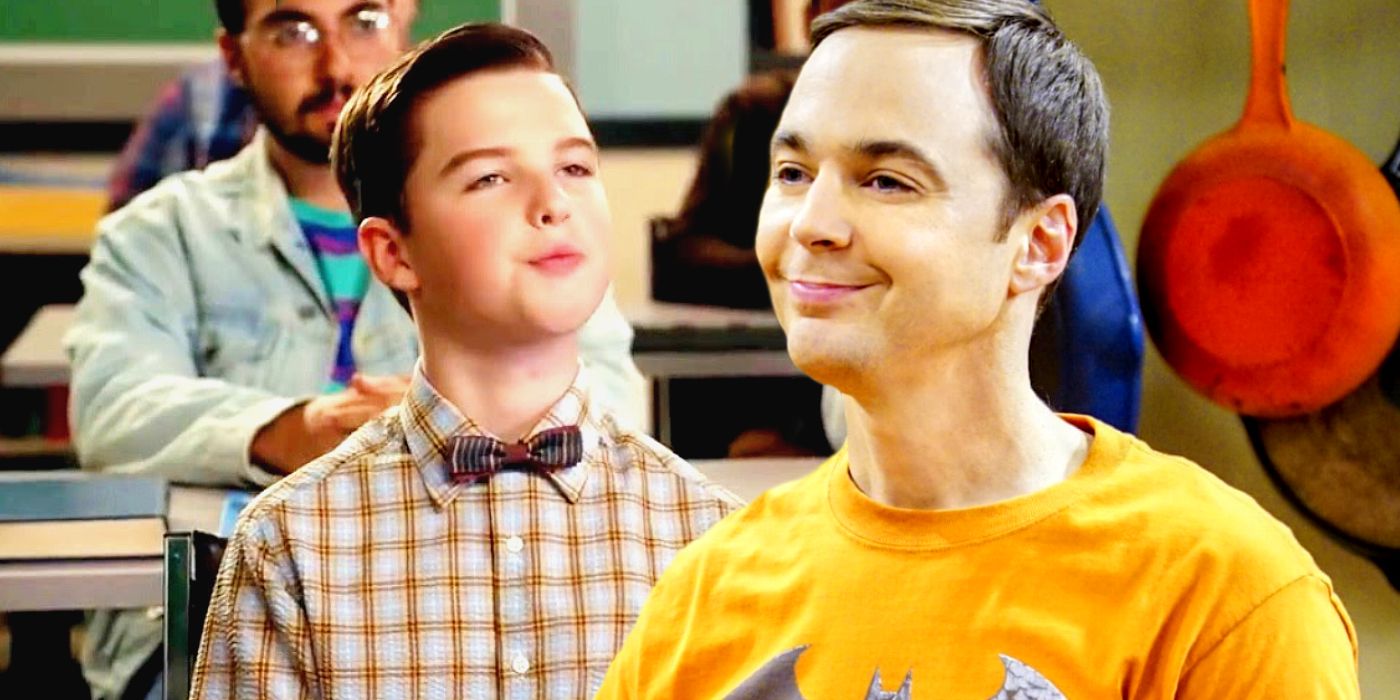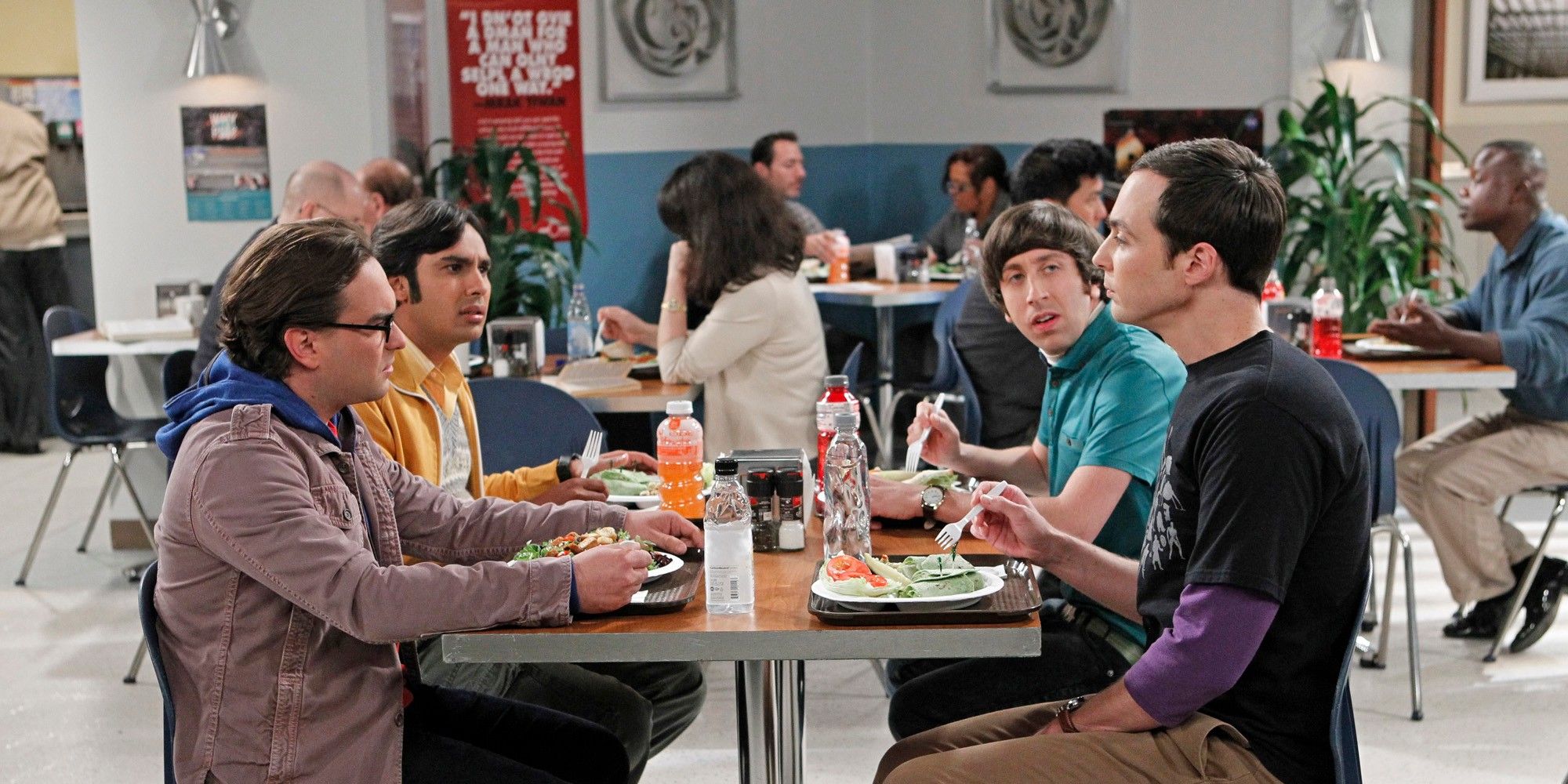Warning! Spoilers ahead for Young Sheldon season 5, episode 7.
Sheldon's (Jim Parsons) abhorrence toward tenure in The Big Bang Theory is explained in Young Sheldon. CBS' spin-off series has expanded on the socially-inept genius' story by tackling his childhood in Texas. Given this, Young Sheldon is able to build on The Big Bang Theory's story by explaining some of Sheldon's oddest quirks and opinions.
In the past, Young Sheldon has been criticized for its lax approach to continuity. Since it premiered, it has contradicted what's been established in The Big Bang Theory several times, which has understandably turned off some of the original show's fans. But in recent years, CBS has been more actively trying to create a stronger connection between the shows to appeal to the massive fan base that the original sitcom left when it went off the air in 2019. So, instead of simply telling the story of Sheldon's time in Texas, Young Sheldon has also offered new details about the character that explains some of the choices he made in The Big Bang Theory. In season 5 alone, the prequel has already revealed why Sheldon liked using the word "coitus" instead of "sex" and why he went out of his way to be mean to his friends.
This time, however, the offshoot explains why Sheldon hates engineering, resulting in his regular mockery of Howard (Simon Helberg). As revealed in Young Sheldon season 5, episode 7, titled "An Introduction to Engineering and a Glob of Hair Gel," this all starts when he struggles with an engineering class in college. Since he has always been so sure of his intellect, having a difficult time working on homework for the course is traumatizing for him — so much so that he ends up carrying that grudge for years. But aside from this, the outing also explains Sheldon's abhorrence for tenure. In The Big Bang Theory season 6, episode 20, titled "The Tenure Turbulence, " Sheldon, Raj (Kunal Nayyar), and Leonard (Johnny Galecki) had an opportunity to be granted tenure at Caltech. But while his friends were excited by the idea, Sheldon wasn't thrilled about it. He said that the system led to the faculty being lazy and complacent in their jobs. However, his opinion on the matter may have had something to do with his college engineering class and the fact it was taught by a tenured teacher, Professor Boucher (gues star Lance Reddick).
In the Young Sheldon episode, Sheldon asks East Texas Tech's president for help as he struggles to finish Professor Boucher's homework. The socially-inept genius has passed countless versions of the required paper, but all of them are deemed wrong, resulting in the teacher ruthlessly ripping up his assignment in front of him. Since Sheldon’s an important asset to East Texas Tech, the institution's president asks Professor Boucher to take it easy on Sheldon, but he refuses. When he gets threatened to be fired, he confidently says that he is tenured. While the sitcom doesn't show Sheldon learning that the principal's attempt to resolve his issue failed, the chances are that he finds out about it off-screen. Hence why, he turns to his dad, George (Lance Barber), for help. Unfortunately for him, that also doesn't work. Instead, the Cooper patriarch agrees with Professor Boucher that Sheldon shouldn't be coddled. The fact that the teacher is basically untouchable because he has tenure turns off Sheldon on the idea altogether.
Admittedly, Sheldon tends to be overbearing. Aside from his mentor, Professor Sturgis (Wallace Shawn), many of his teachers don't like him because he's cocky and full of himself. However, there's an argument that Professor Boucher's teaching method was a bit harsh in Young Sheldon as he refuses to even give Sheldon a clue what he is doing wrong. Now it's no wonder why the socially-inept genius develops a deep hatred for engineering and tenure in The Big Bang Theory.


